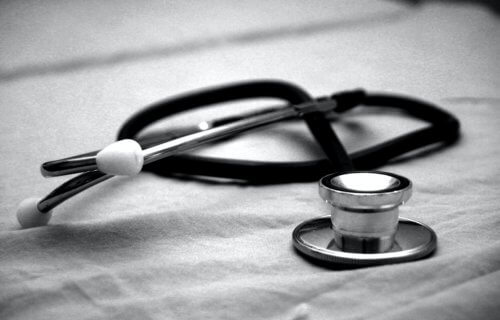There are dozens of studies, innovations, and research findings released everyday by institutions and clinics across the world. Here’s a look at some of the other notable health reports from April 29.
OHIO researcher looks into little known ‘purging disorder’
Though purging is often a condition associated with bulimia nervosa, new research at Ohio University suggests that a different kind of eating disorder could also be responsible.
New technique shows in detail where drug molecules hit their targets in the body
Scientists at Scripps Research have invented a way to image, across different tissues and with higher precision than ever before, where drugs bind to their targets in the body.
Potent TRIM21 and complement-dependent intracellular antiviral immunity requires the IgG3 hinge
In addition to their extracellular functions in host defense, IgG antibodies bound to viruses can collaborate with the cytosolic Fc receptor TRIM21 to target and degrade intracellular viruses.
A new mutation behind synucleinopathies
Parkinson’s disease and Lewy body dementia belong to a family of neurodegenerative disorders called synucleinopathies because they are caused by the pathological accumulation of protein alpha-synuclein into structures called Lewy bodies and Lewy neurites in the brain.
Scientists Detail Brain Dynamics Implicated in Neurological Conditions
When you daydream, or ruminate on something bothersome, or ponder the past, or plan for the future, the part of your brain most engaged is the default mode network, or DMN, which includes part of the prefrontal cortex.
New Model for Antibacterial Mechanism
Biologists at the U.S. Department of Energy’s Brookhaven National Laboratory and their collaborators have discovered an aberrant protein that’s deadly to bacteria.
Breakthrough in how buildings can promote health and well-being
Having understood the ill-effects if sick building syndrome and the need to better conserve energy by incorporating green features, architects are also utilizing certain elements of an architectural design system shown to reduce stress, improve sleep, promote physical and mental health, thereby improving the quality of life for its inhabitants.
A novel therapy ameliorates obesity and Type 2 diabetes in mice fed a high-fat diet
A novel therapy developed at the University of Alabama at Birmingham ameliorates obesity and Type 2 diabetes in mice fed a high-fat diet.
How hypertension and ageing impact artery walls – new findings on atherosclerosis pathology
New findings show how the progression of atherosclerosis is affected by a combination of hypertension and changes to the stiffness of the artery.
AGS honors expert & emerging geriatrics leaders at 2022 Annual Scientific Meeting (#AGS22)
The American Geriatrics Society (AGS) annually honors researchers, clinicians, educators, and emerging health professionals who have made outstanding contributions to high-quality, person-centered care for older people.
